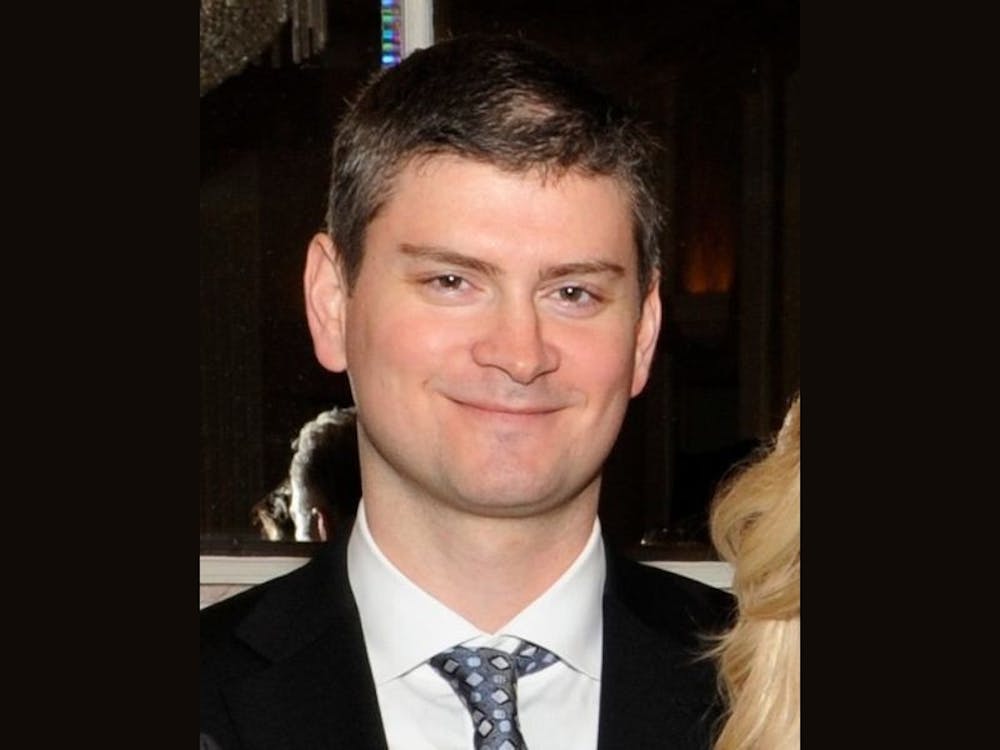Michael Schur stopped by Duke University on Friday to speak as part of the “Ethics of Now” series that features conversations between Duke historian and professor Adriane-Lentz Smith and artists, advocates and authors on ethics affecting the Duke and Durham communities.
Michael Schur, the creative mind behind shows such as “The Good Place,” “Parks and Recreation” and “Brooklyn Nine-Nine,” joined Lentz-Smith, associate professor and associate chair in the department of history, at the Nasher Museum of Art in a conversation about his new book, “How to be Perfect.”
Schur gave insights on his creative process and his take on ethics and moral perfection.
“While I hope that people would come to the same conclusion I came to, which is that the most important aspect of leading an ethical life is simply caring one way or the other ethical life, because it's very hard to do it, it's very thorny, complicated and weird,” Schur told The Chronicle. “The temptation is, I think, because it's complicated, is to not care about it. And the first and most important step toward living an ethical life to me is just deciding that you're going to try.”
His talk was interspersed with hilarious anecdotes and concluded with answers to some of the pressing ethical issues audience members faced through a Q & A session.
“If [morality] becomes the only objective in your life, then you just become like a battery powering the lives of other people, and you're not living anything close to what any of us would consider to be a happy and verdant life,” Schur said.
Schur’s take on Ubuntu
Schur’s book talked extensively about the South African concept of “Ubuntu,” something that also echoes in the characters he has created for his various shows. The philosophy broadly stands behind the claim that “a person is a person through other people.”
“This was a situation where I read about a thing that seemed to have predated everything that I had written about or cared about to that point,” he said.
Schur learned about this concept from Doc Rivers, former head coach of the Boston Celtics. Rivers led the team to win the 2008 NBA championship by asking them to work with the mindset that “you flourish when I flourish, and I flourish when you flourish.”
He mentioned how COVID has impacted this concept with an increase in remote environments, expressing that, “I think that this only matters when it's when you're colliding with people.”
Where do we draw the ethical line?
A key idea addressed by Schur in his talk was the age-old ethical conundrum of where to draw the line.
Lentz-Smith asked Schur to address the idea through a moral issue she was facing — can she make up for spending money at Chick-fil-A, an organization that does not align with her beliefs, by donating to a human rights campaign?
Schur replied that while you may think donating to a human rights campaign negates your version of indulging in a Chick-fil-A chicken sandwich, you cannot buy your way out of morals.
He added, however, that “it’s not a one-size fits all question,” explaining that almost everyone is a fan of something that is decidedly problematic. “Most of the greatest artists who ever lived are kind of terrible,” Schur said.
“I don't think it's a good answer to say you have to cut all art made by problematic people out of your life forever, because then you're not living,” Schur said. “You can't go to the Louvre for God's sake.”
Schur’s talk made the broad subject of ethics “palatable” for an audience, first-year Hadi Chaudhri said.
“I really like all the comedic tropes that Mike Schur was talking about, especially how they tied into ethics,” he said. “It made this really big experience for me, where I was introduced to the basics of ethics through this really palatable and enjoyable medium and that was just really transformative.”
Get The Chronicle straight to your inbox
Sign up for our weekly newsletter. Cancel at any time.
Ishita Vaid is a Trinity junior and a senior editor of The Chronicle's 120th volume.

